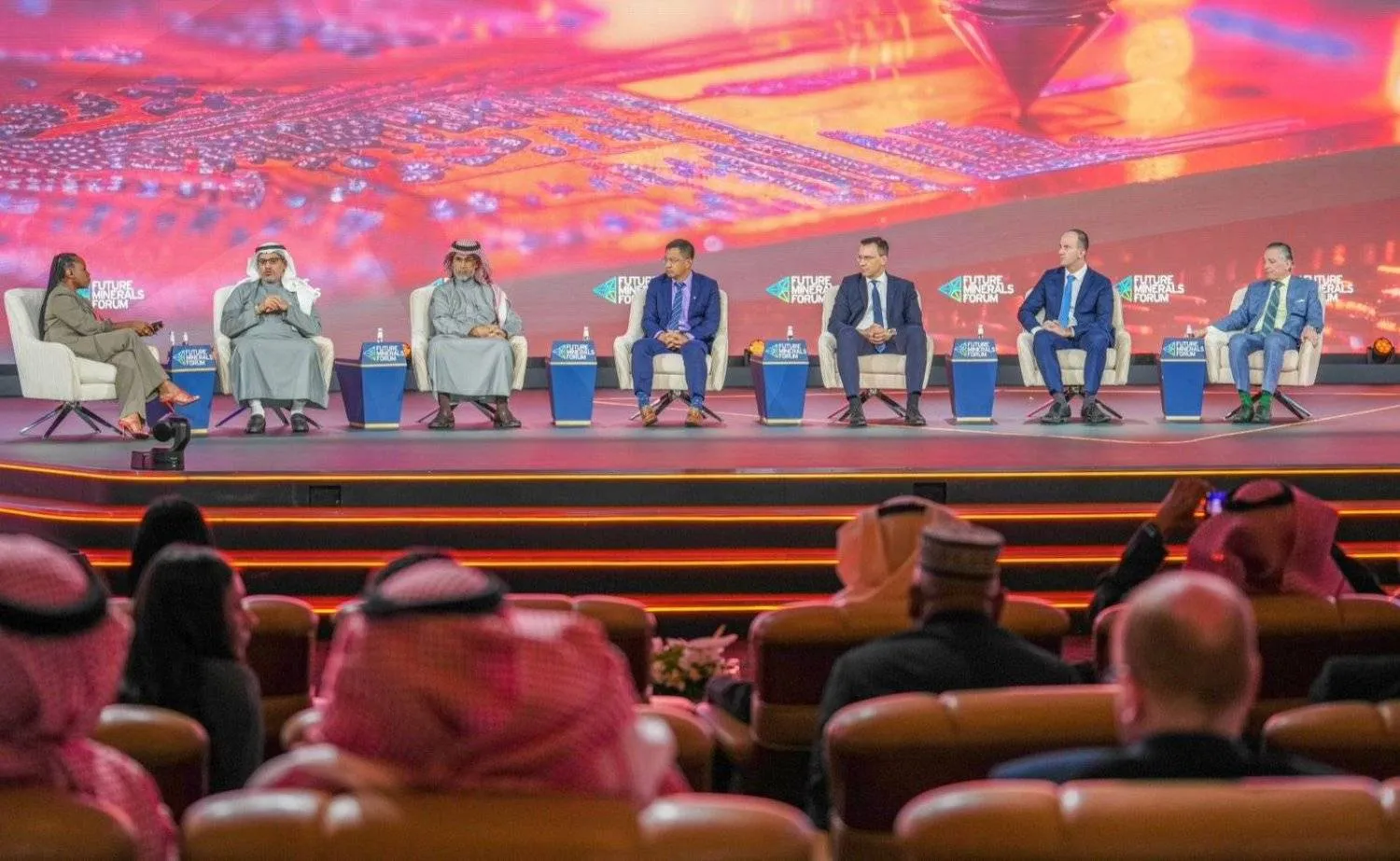The Future Minerals Forum concluded on Thursday following dialogue sessions that presented solutions to address challenges and highlighted the importance of meeting the increasing demand for strategic minerals.
Held under the patronage of the Custodian of the Two Holy Mosques, King Salman bin Abdulaziz, the two-day forum highlighted the necessity to enhance technological innovations, and the importance of providing stable supplies of batteries for recycling, to advance the industry and achieve its long-term goals, as well as the need for critical minerals to achieve the energy transition.
At the conclusion of the conference, Minister of Industry and Mineral Resources Bandar Al-Khorayef said that the event has become a rich platform for the advancement of the industry worldwide.
He added that mining in Saudi Arabia witnessed an accelerated movement in less than three years, with the support of the government, noting that the future goal lies in making the sector have a real impact on the Kingdom’s social and economic life.
Leaders and officials at the forum stressed the need to make parallel efforts while expanding the scope of the industry in a geopolitically independent manner, emphasizing the pivotal role that the mining sector plays at the environmental and social levels.
Sandstorm Royalties Senior Executive Vice President David Awram focused on the challenge of finding good governance for mining companies to achieve sustainability.
For his part, Board Member and Executive Vice Chairman of Huayou Cobalt George Q. Fang called for building a different business philosophy in the face of evolving industry challenges, pointing to the importance of working with the right partner to achieve added value.
Saudi Deputy Minister of Industry and Mineral Resources for Industrial Affairs Eng. Khalil bin Salamah said that the human element was one of the most important factors to establish valuable supply chains.
In turn, Ibrahim Al-Nassar, the CEO of the Saudi Mining Services Company, Isnad, explained that the national strategy for developing the mining sector focuses on providing a work environment that attracts investors, adding that the sector represents the third pillar of the national industry according to Vision 2030.










